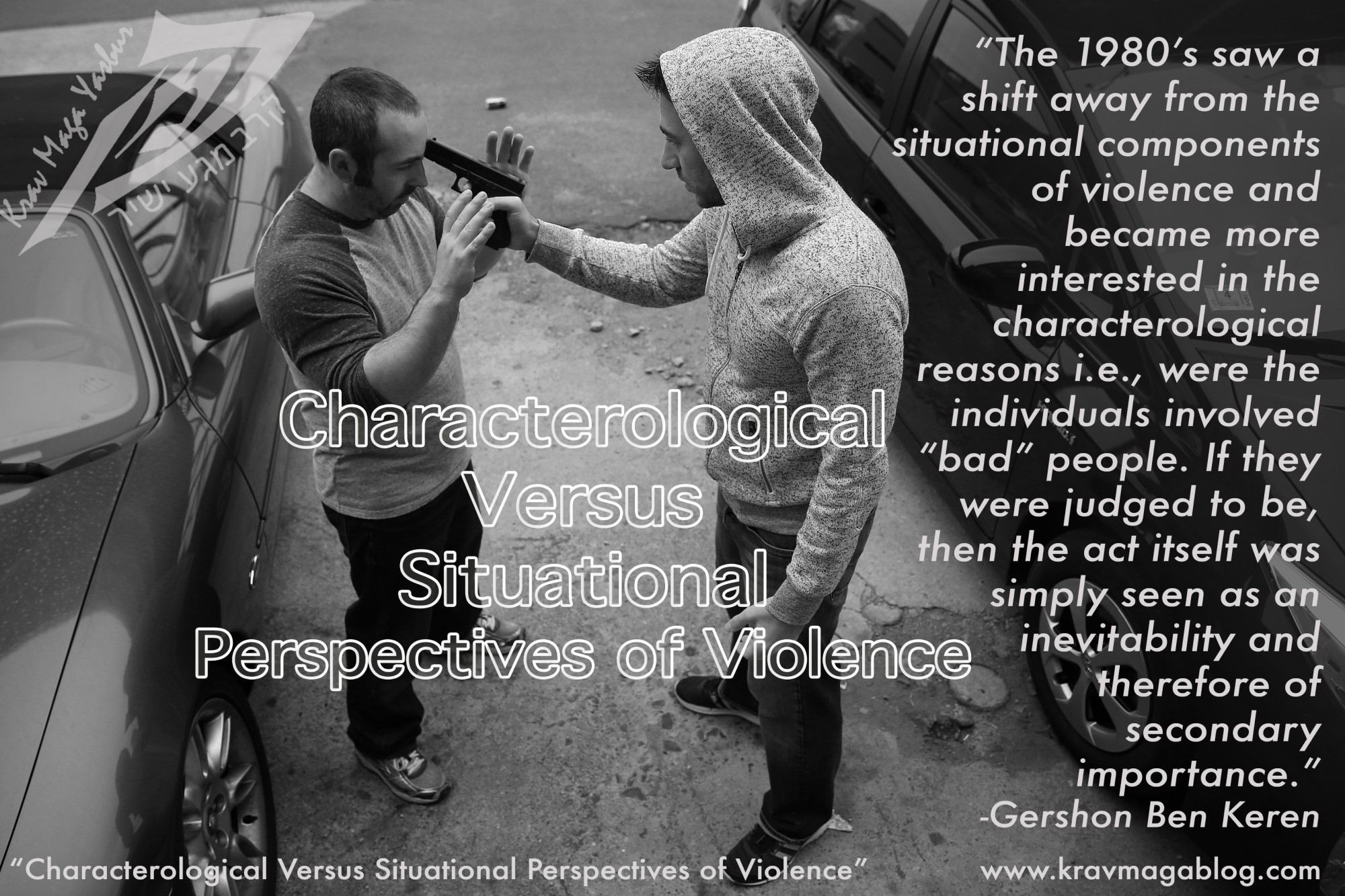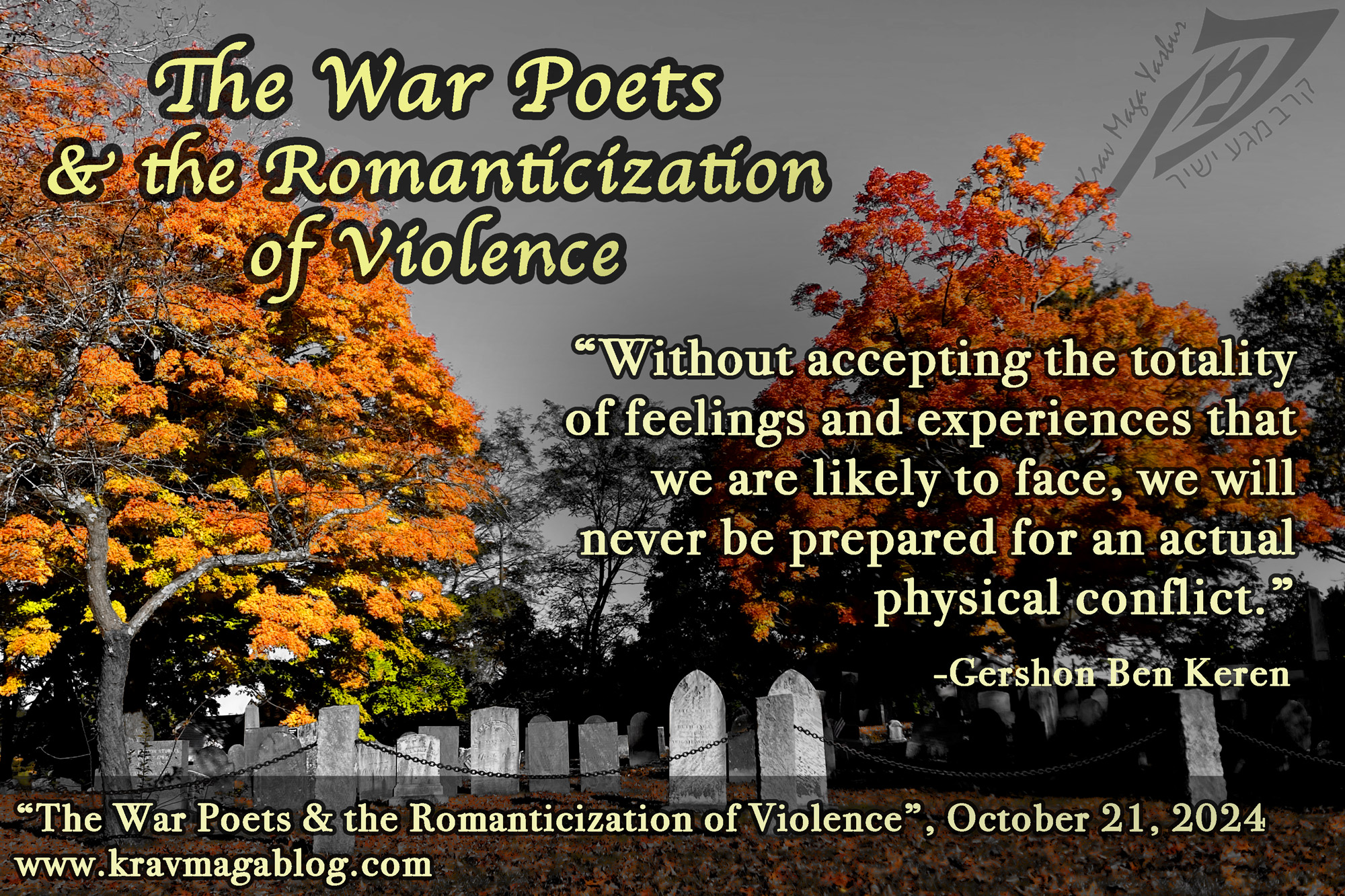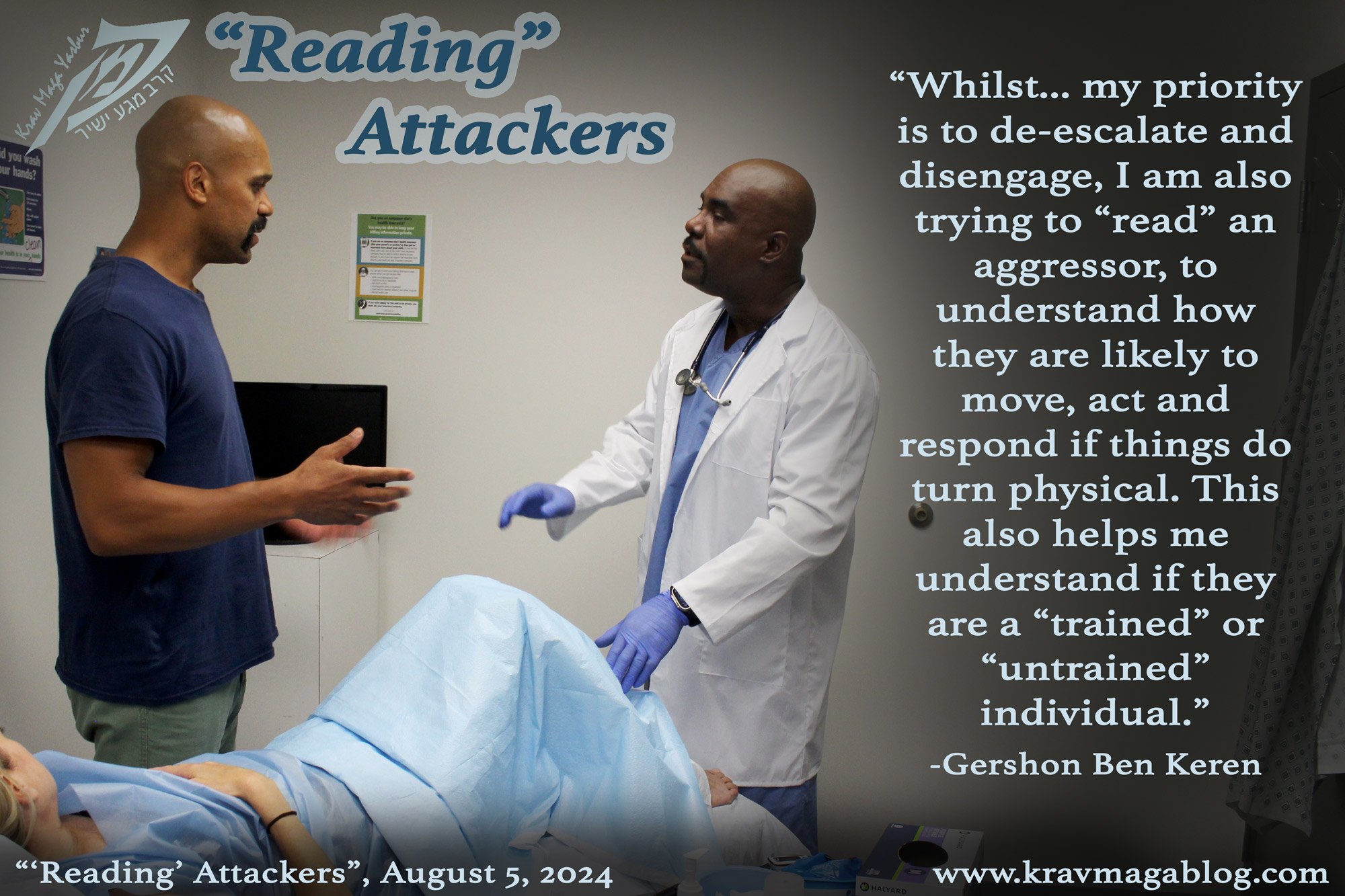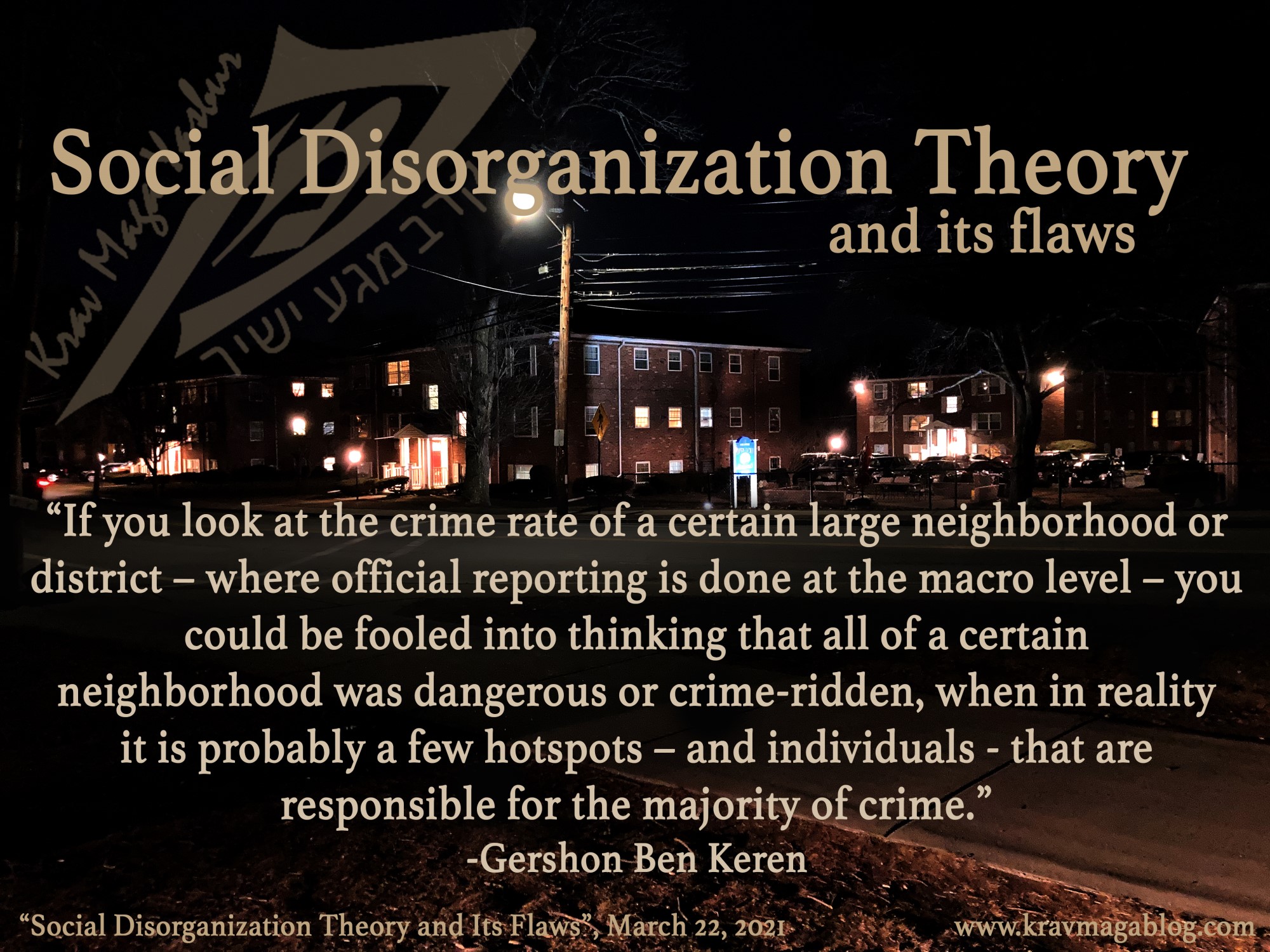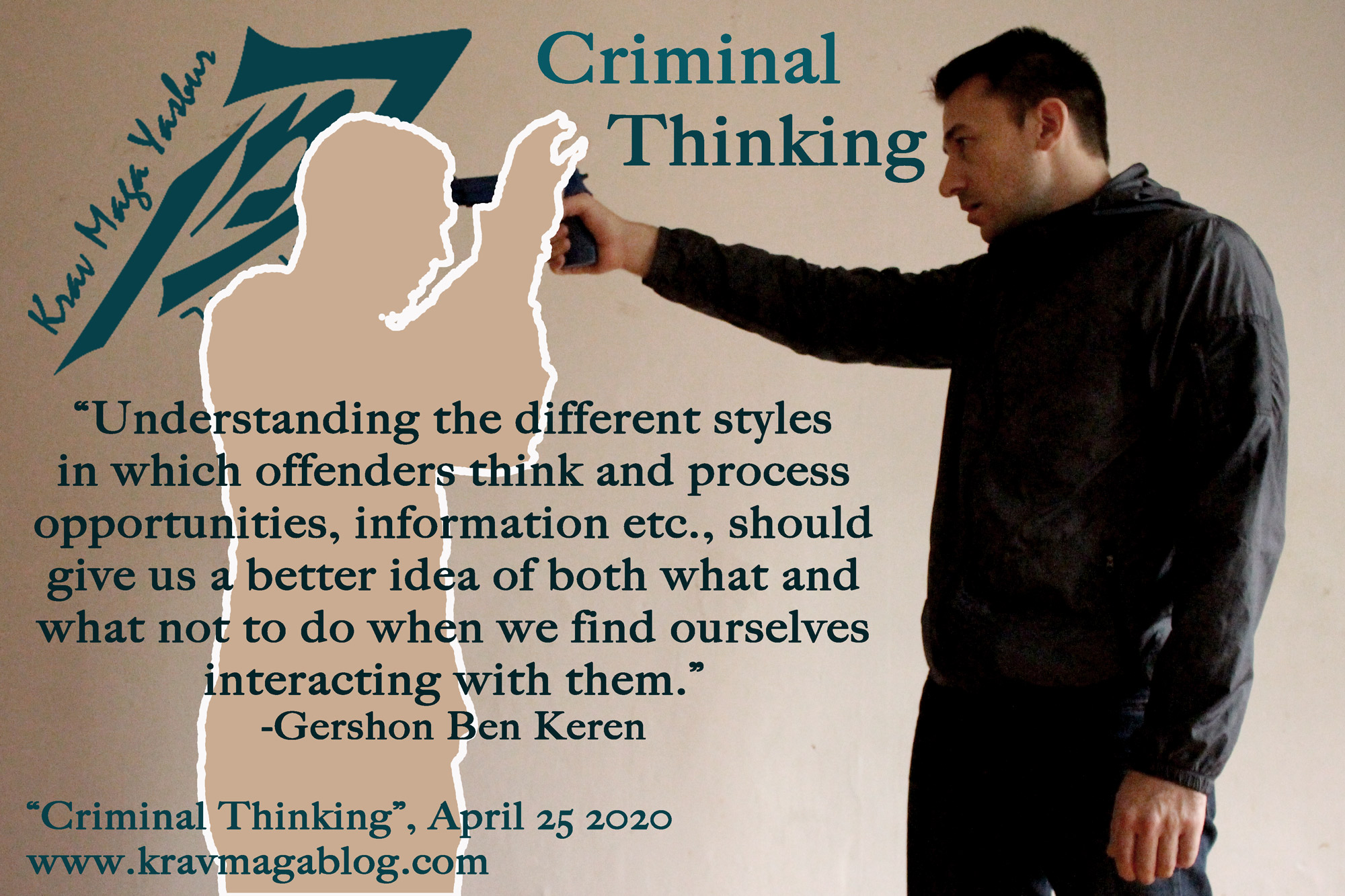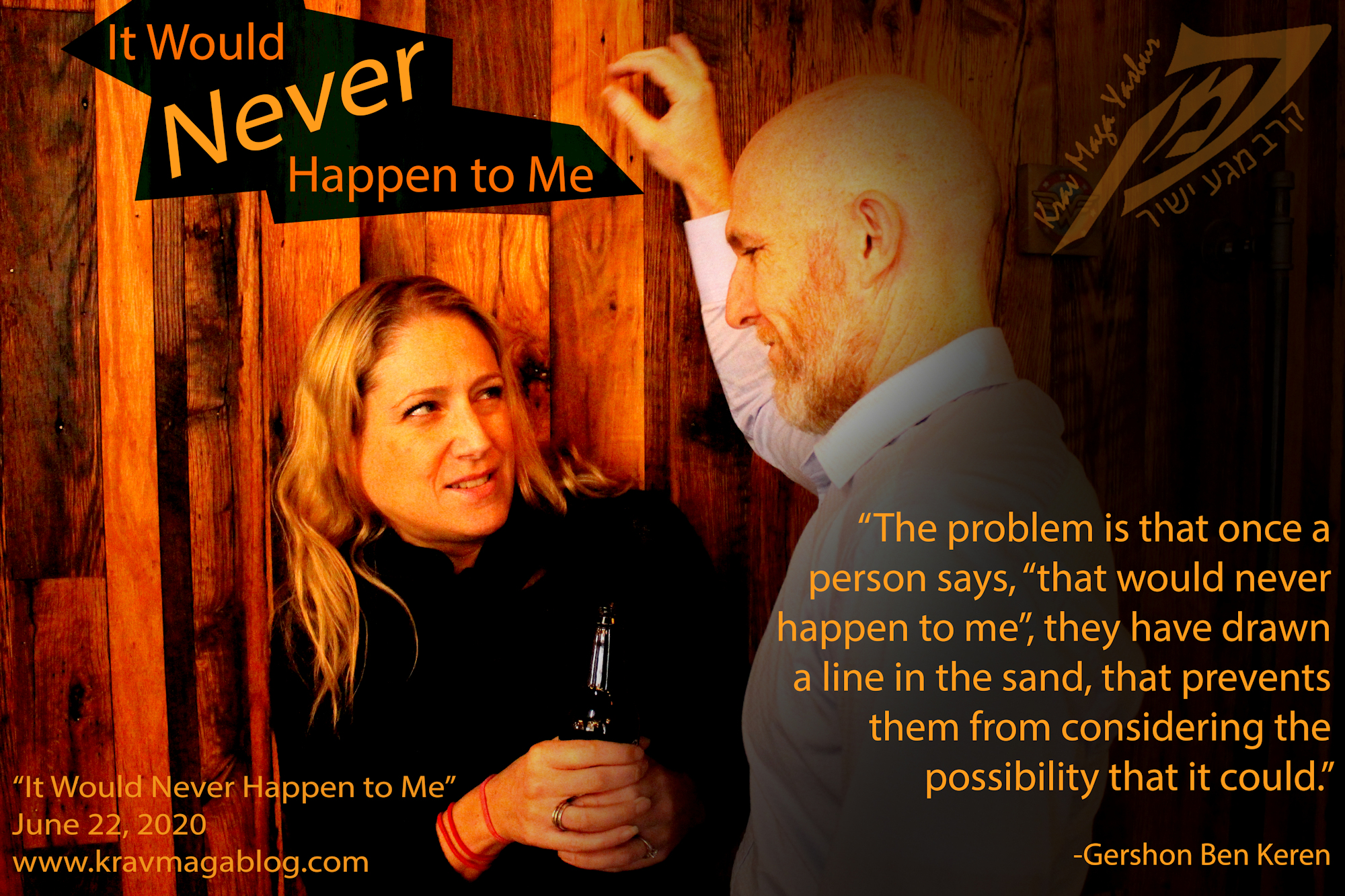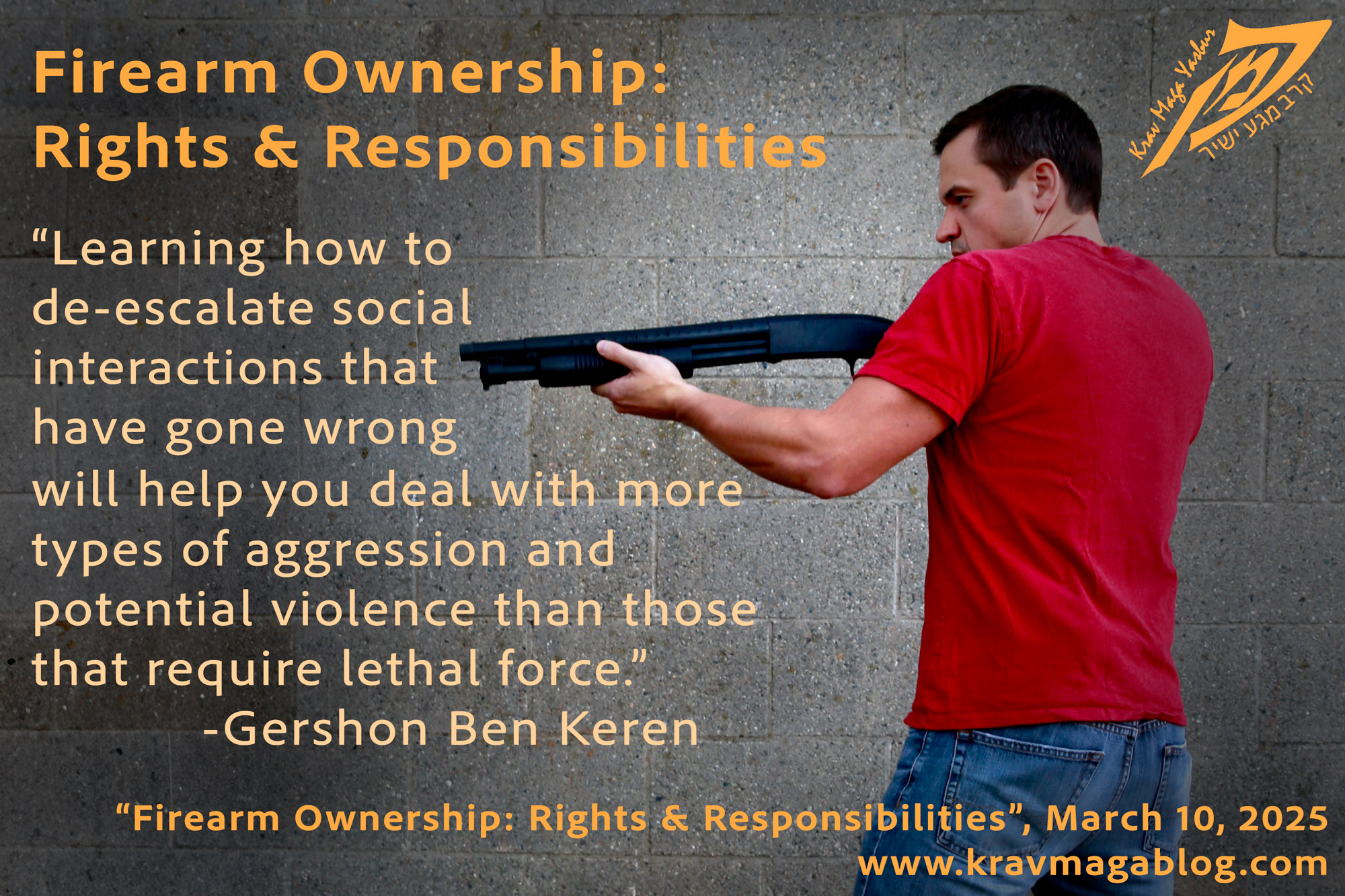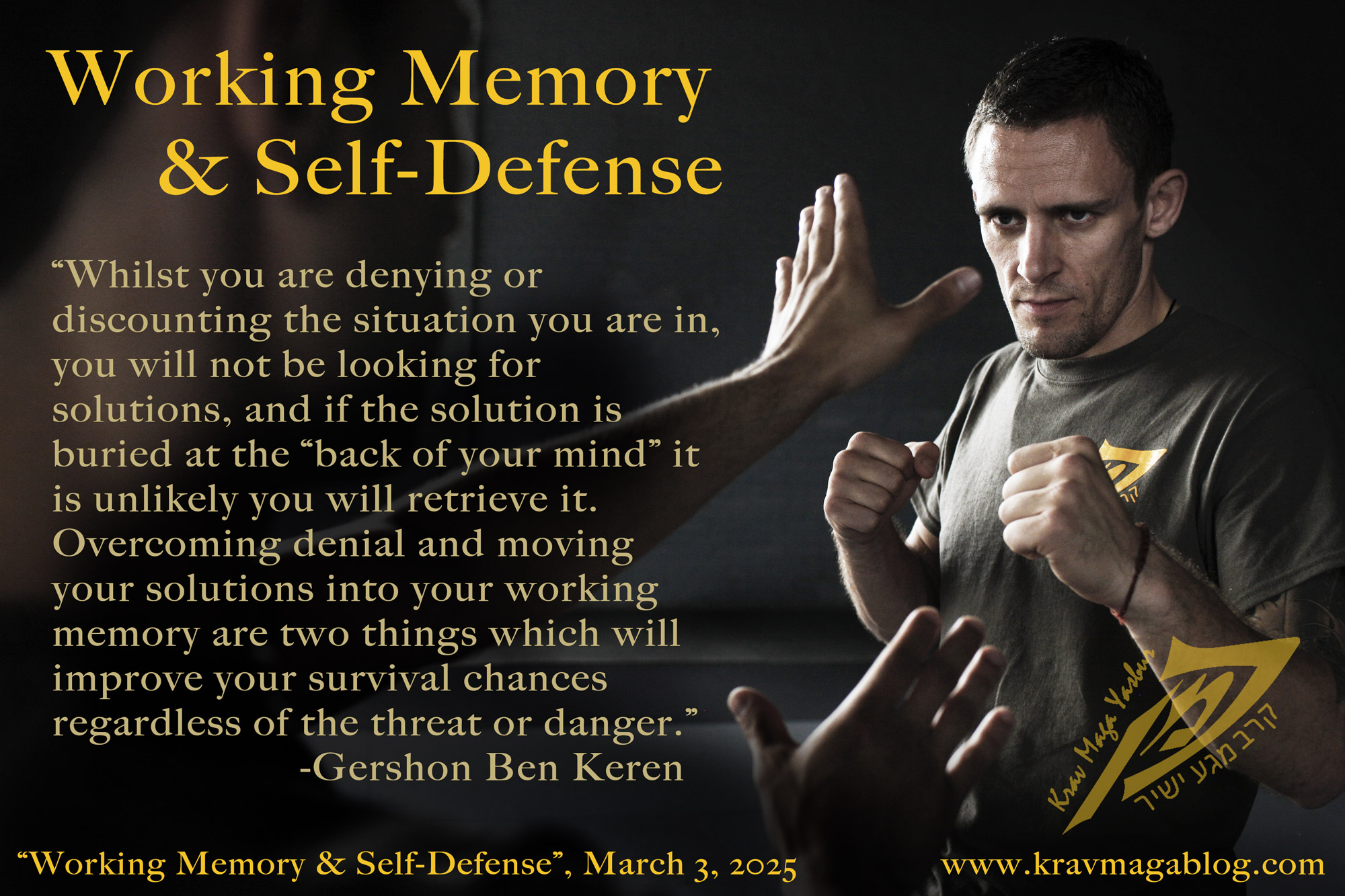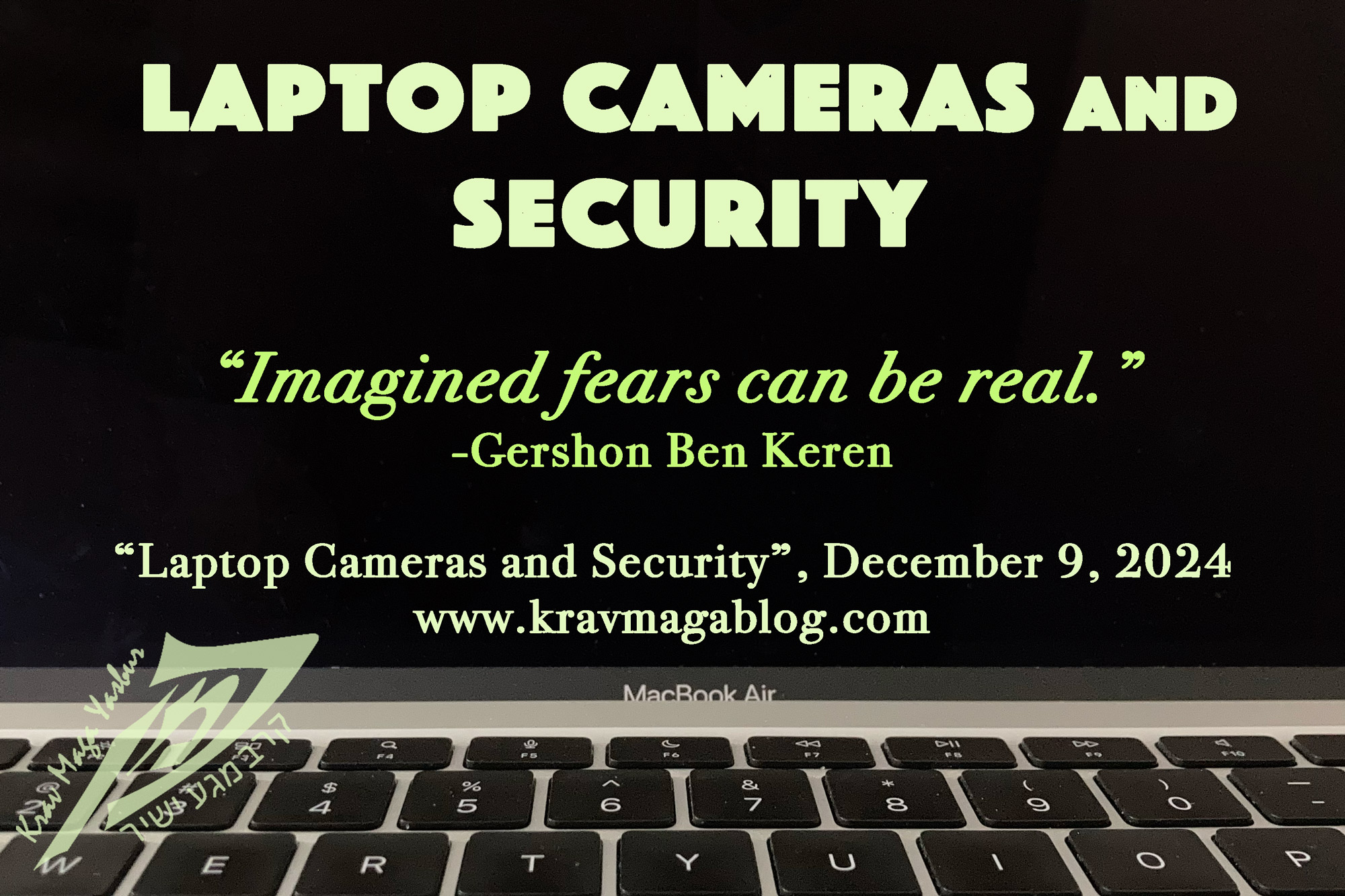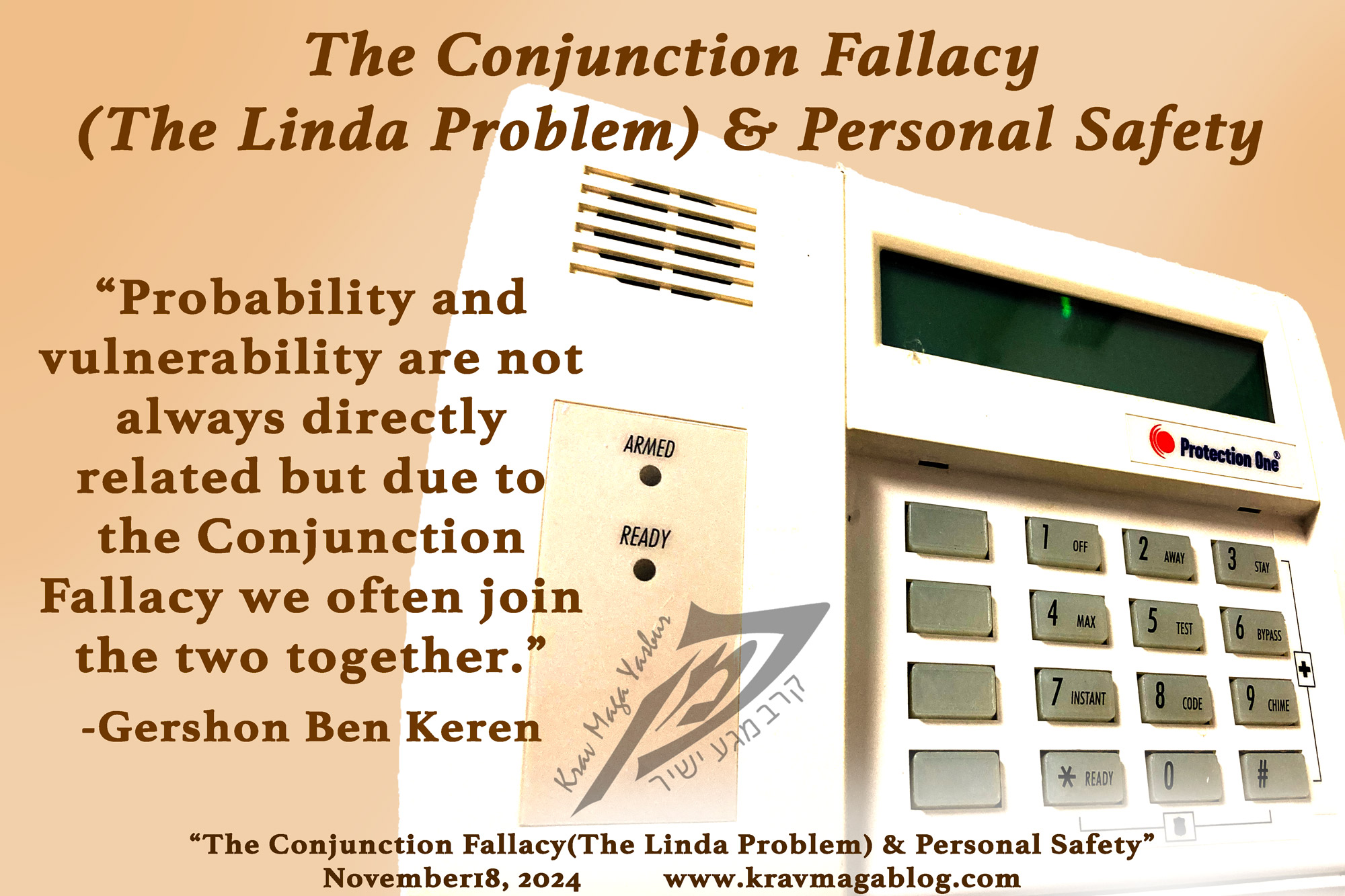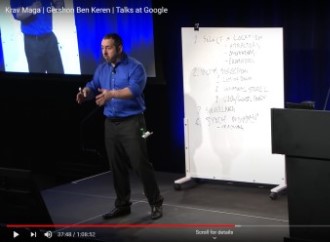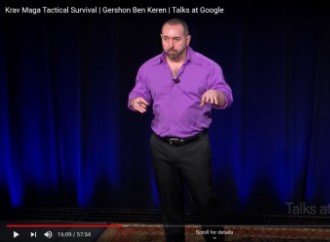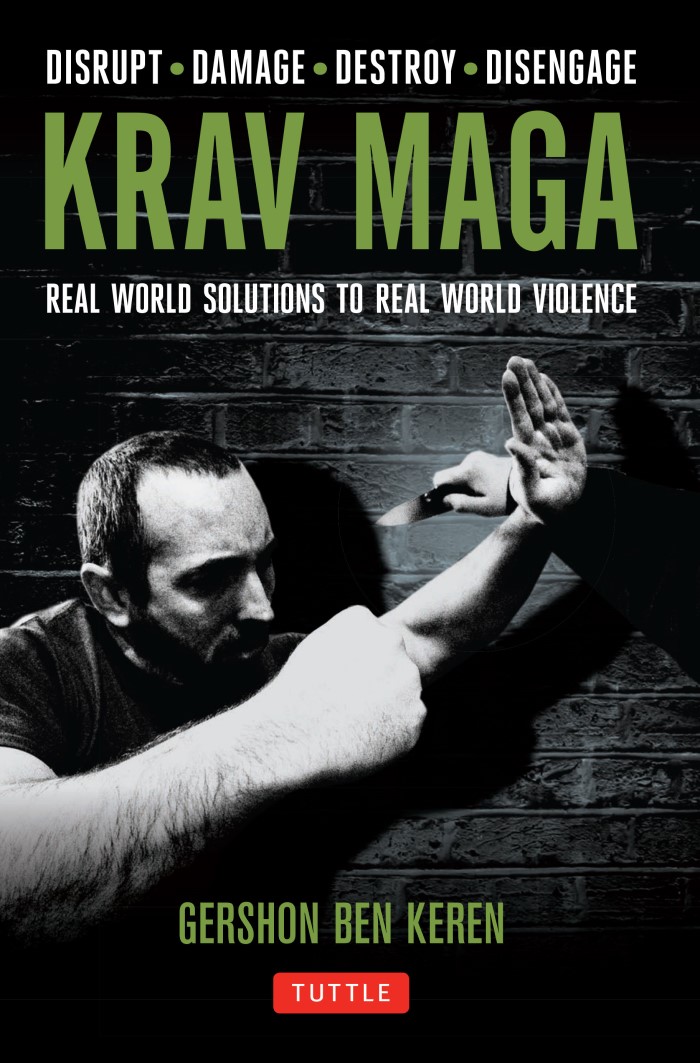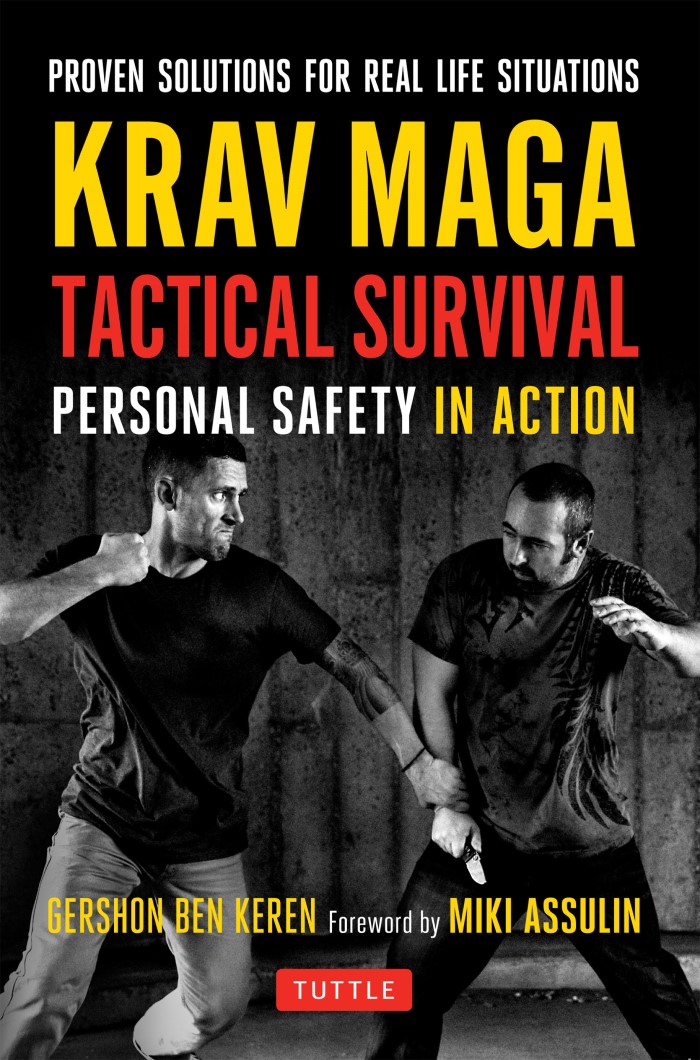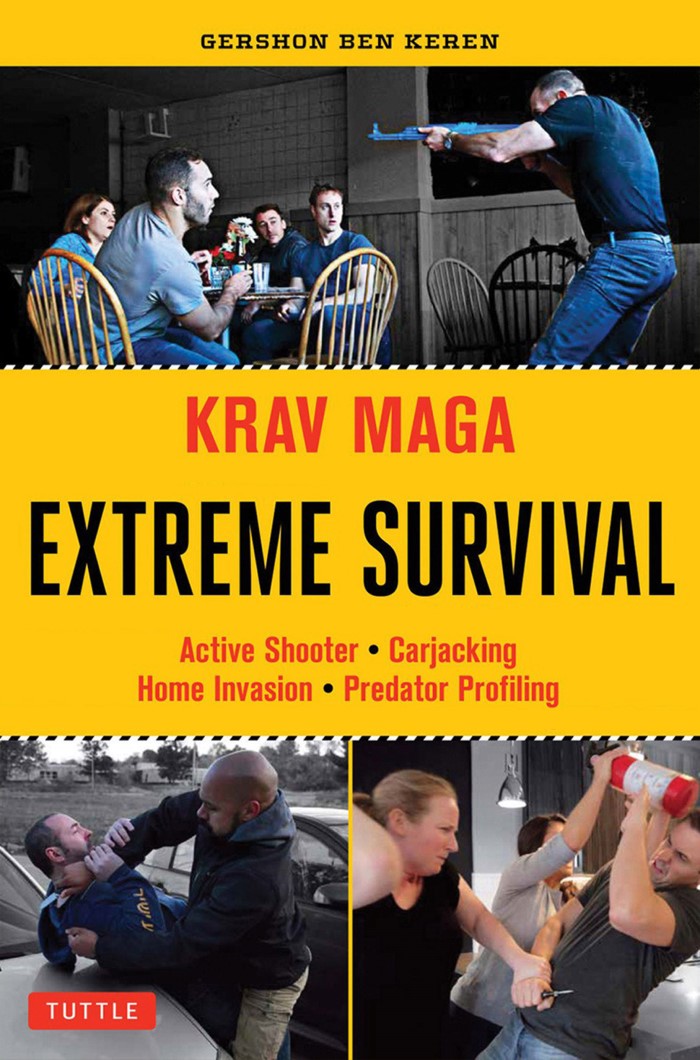It Would Never Happen To Me, is an article written by Gershon Ben Keren, a 5th Degree Black Belt in Krav Maga, who teaches Krav Maga in Boston, MA. He has also authored three Amazon best-Selling Books on Krav Maga.
Wherever possible, I try to be scientific in my approach to self-defense and personal safety. I try to take an evidence and research-based approach to the study of violence, rather than other people’s well-intentioned good ideas about what they think violence looks like. When I am talking with fellow professionals who are expressing ideas based on their experience(s), I try to consider, the context in which they were working, and how translatable that is to others, etc. Experience – including my own – by its own definition is limited to the individual, and so may not always be applicable to others in the same or different situations, etc. To cut a very, very long story short, I spend a lot of my time studying crime and violence, taking an event-based approach to looking at how it is possible to prevent, identify and avoid violent crimes, before they have to be dealt with physically. However, often when I present the methods and processes that predatory individuals consistently use, I will get the response, “That would never happen to me.” It soon becomes clear, when the conversation goes a bit deeper, that the more confidently this is stated – note the use of the word “never” - the less the individual has thought about issues of personal safety. This is an emotional reaction, not a cognitive response i.e. there’s a lot of things that I don’t think will happen to me, but I understand that they could, and need to consider the possibility rather than immediately dismissing them. The problem is that once a person says, “that would never happen to me”, they have drawn a line in the sand, that prevents them from considering the possibility that it could. I have witnessed people coming up with and convincing themselves of fantastical situations, that requires the most complex mental gymnastics to defend, to reassure themselves that they are right, in their understanding of violence. In this article I want to look at what is actually being said when someone states, “that would never happen to me”.
Although it is not intended this way, “that would never happen to me” is a form of victim blaming. If I give somebody an account of a sexual assault, and explain that the events that played out were/are common to many rapes and sexual assaults, and the person’s response is, “that would never happen to me”, then the question has to be asked: why was it that it happened to these individuals? Were they less intelligent, just naïve, and clueless, and/or individuals who were bad judges of character? What is the difference(s), that allowed a sexual assault to happen to them, but that would prevent it from ever happening to the person who asserts that they would never be victimized this way? When I first started doing post-graduate research with prison populations, the professor heading up the research advised me that however clever and astute I was, not to believe that I was above being played and taken advantage of. It was a good lesson to learn in my early twenties: you’re not as clever as you think you are, and there are people who are much more experienced at playing certain games than you are. We all have blind spots and we all have weaknesses, which predatory individuals are quick to observe and then test; with many prepared to play a long game if necessary, such as your partner’s best friend waiting until they leave town on business to turn up on your doorstep unannounced asking to borrow something that requires them coming in to your home. If you believe that would never happen to you, what is your plan if it does? How are you going to deal with that situation? Let them in, and hope nothing happens, after all they know you can identify them so they would not do anything, right? If you think this isn’t how sexual assaults occur, that they always involve strangers, inebriated victims, etc., listen to the collective voices of survivors of rape who have been brave enough to share their stories, so that others might benefit from them. Understand, that although not intended, the response of “that would never happen to me” is one of judgment.
The more something hasn’t happened, the less likely we are to think it will. Experience is a good educator. However, it can also lead us astray. At the moment everybody I know, including myself, is sick of being in lockdown due to COVID-19. Most of the people I know, either don’t know anybody who has caught the virus, or if they do know someone who has had it, the symptoms were mild. Personal experience would tell us that people like us (whatever that means) don’t really have to worry about the virus, and that we can start to relax things; and in all likelihood as we start to relax things, and still see no consequences, we will start to quickly speed up the relaxing of precautions we’ve been taking, such as no longer practicing social distancing in certain situations/contexts, not wearing masks in certain contexts, etc. That is how personal experience works. However, this thought process is not scientific, it is based on personal experience and innate human optimism, which is overall an effective survival strategy but falls down drastically in specific situations e.g. running away from danger is generally a good rule of thumb, but not if it leads you into traffic. The longer we go without seeing or experiencing violence firsthand the safer we believe we are, and the more likely we are to drop or reduce certain precautions we used to take, and deny and discount actions and behaviors that may one have caught our eye. We must recognize the limits of our experiences and look beyond them so that we are better prepared to deal with any potential threats and dangers we may face, whether from a virus, or another individual.
I have written about risk and likelihood before, and about the ways in which they are distinct and connected and in all instances the word “never” is ever applicable. We should be careful not to exclude potential threats from our risk register because we believe from our own experience they don’t exist or simply aren’t applicable to us, because the same threat can be repackaged in a number of ways, that will mean that they’re not on our radar. If we don’t question the coincidence in timing of our partner’s best friend turning up at our door unannounced when they are out of town, then we’re missing the first step in a process that could have a dire consequence.
0 COMMENTS